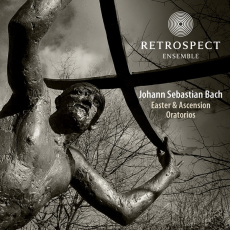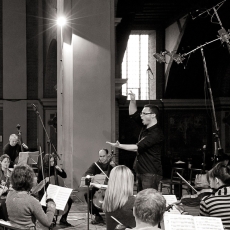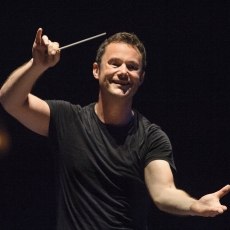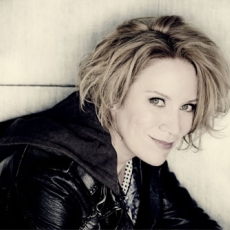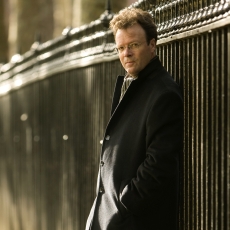Retrospect Ensemble - J.S. Bach Easter and Ascension Oratorios - musica Dei donum
When Jesus, after his resurrection, meets Mary Magdalene at the sepulchre she wants to hold him, but he says: "Do not hold on to me, for I have not yet ascended to the Father." The resurrection and the ascension are closely connected, as is also expressed in the oratorios Die Auferstehung und Himmelfahrt Jesu by Karl Wilhelm Ramler, which were set by Georg Philipp Telemann and Carl Philipp Emanuel Bach. Johann Sebastian Bach didn't compose such a work, but rather two pieces for Easter and for Ascension Day. It makes sense to combine them on one disc, and it is surprising it hasn't happened that often. According to the Bach Cantatas website only two commercial recordings of this kind exist, one with the Bach Collegium Japan and one under the direction of Gustav Leonhardt.
The Easter Oratorio was first performed on April 1, 1725 in Leipzig. It was a reworking of a cantata which Bach had written for the birthday of Duke Christian of Sachsen-Weißenfels in February of that year. The text had been written by Christian Friedrich Henrici, better known as Picander, and it is likely that he also adapted the text for the Easter Oratorio. Only the recitatives were entirely new. There are four roles in this piece, representing characters which appear in the resurrection story as told in the gospels: Mary, the mother of James (soprano), Mary Magdalene (alto), Peter (tenor) and John (bass). The original score doesn't mention any character, but it seems they are mentioned in the parts (which I couldn't check). Three different versions of the Easter Oratorio are known, and it is in the second that Bach calls it an oratorio.
This should put into perspective the fact that the second work on this disc, Lobet Gott in seinen Reichen (BWV 11) is often considered a cantata, and because of that was given the number 11 in the Schmieder-catalogue. In the 17th and 18th centuries there was no clear difference between the various genres, and Carl Philipp Emanuel referred to his oratorio Auferstehung und Himmelfahrt Jesu as his Ramler cantata. The Ascension Oratorio is of a much later date, and was written in 1735. It is also partially based on older material from secular works, written in 1725 and 1732 respectively. This work includes a part for the Evangelist, telling the story of Jesus' ascension. The Easter Oratorio, on the other hand, consists rather of a series of scenes.
At first sight Matthew Halls seems to have recorded these two works with one voice per part: the track-list mentions the names of the soloists and the conductor, as well as the ensemble which is mainly known as an instrumental group. But that is not the case. The Retrospect Ensemble includes a choir of 18 voices, but you have to go to page 21 of the booklet to find that out.
Whatever one may think about the issue of the scoring of Bach's cantatas - with a choir or one voice per part -, there is too much distance between the solos and the tutti. The choir is singing well, but not as coherent as one would wish - partly because now and then a slight vibrato creeps in - and not transparent enough. The chorales lack differentiation in dynamics and articulation. The same is true for some instrumental parts, both in the accompaniment of arias - like the transverse flute in 'Seele, deine Spezereien' (BWV 249) - and the sinfonia which opens the Easter Oratorio.
The performances of the soloists are various. Carolyn Sampson is the biggest disappointment, because her contributions are spoilt by her incessant vibrato. In regard to articulation and speechlike singing she leaves something to be desired. Iestyn Davies doesn't make a good impression in the recitatives in the Easter Oratorio, where he is overpowered by Ms Sampson. In 'Saget, saget mir geschwinde' (BWV 249) his singing is marred by too much vibrato, but the closing line of the B section is beautifully sung. His aria 'Ach, bleibe doch' (BWV 11) is one of this disc's highlights. Both Iestyn Davies and the instrumentalists bring out the Affekte convincingly. The secco recitatives in the Ascension Oratorio - allocated to the Evangelist - are rhythmically too strict. I have some problems with James Gilchrist's slight vibrato now and then. He sings the aria 'Sanfte soll mein Todeskummer' from the Easter Oratorio very well, though, with fine text expression and a good articulation. Peter Harvey has only accompanied recitatives to sing; his singing is alright, but that is all there is to say.
All in all, I am a bit in two minds about this disc. Generally the level of singing and playing is high, and the performers show a basically good understanding of Bach's musical language. The liner-notes indicate that they seem to be aware of the important role of Affekt and rhetorics in Bach's music - and in all baroque music, for that matter. But to work it out consistently is something different. In particular in regard to dynamic differences and the observation of the hierarchy of the notes this recording doesn't come up to the mark.
